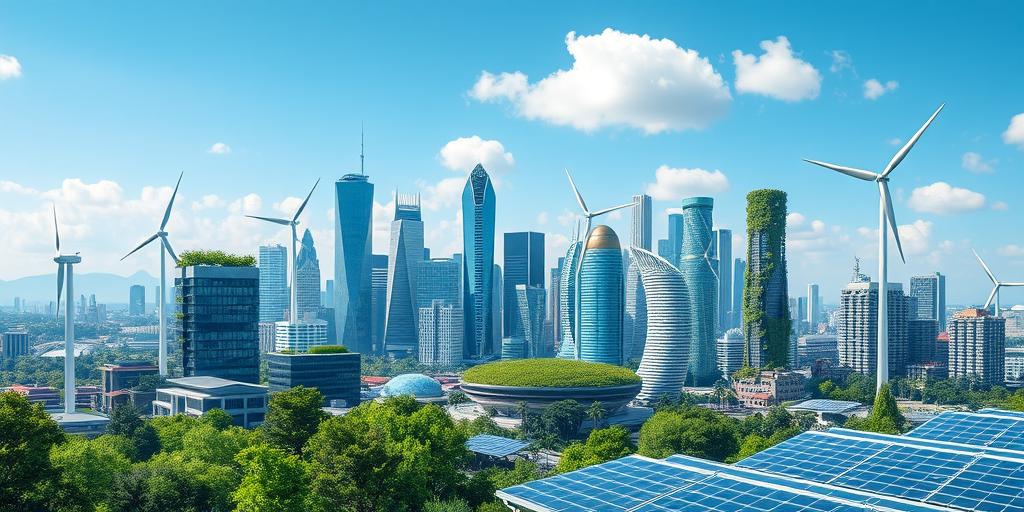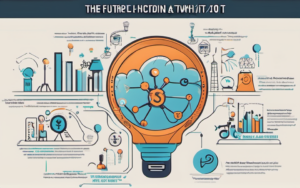Emerging technologies are rapidly transforming various aspects of our lives, and their impact on sustainability is undeniable. From renewable energy solutions to smart city initiatives, these innovations hold immense potential to address environmental challenges and create a more sustainable future.
The Intersection of Technology and Sustainability
The relationship between technology and sustainability is multifaceted and evolving. While technology has contributed to environmental problems, it also offers crucial solutions for mitigating these issues.
The Role of Technology in Addressing Environmental Challenges
Technological advancements have played a significant role in shaping the modern world, but they have also come at a cost to the environment. The widespread adoption of fossil fuels, industrial processes, and consumerism has led to increased greenhouse gas emissions, pollution, and resource depletion. However, technology is not the enemy, but rather a powerful tool for addressing these challenges.
Emerging Technologies as Drivers of Sustainable Practices
Emerging technologies are emerging as key drivers of sustainable practices. These innovations offer innovative solutions to environmental problems by improving resource efficiency, reducing pollution, and fostering a circular economy.
Key Technologies Shaping a Sustainable Future
Several emerging technologies are poised to play a pivotal role in shaping a more sustainable future. These technologies offer opportunities to reduce our environmental footprint and create a more resilient and equitable world.
Renewable Energy Technologies
Renewable energy technologies, such as solar, wind, and hydropower, are essential for transitioning to a clean energy future.
Solar Power
Solar power, which harnesses the energy from the sun, has become increasingly affordable and accessible. Solar panels can be installed on rooftops, in solar farms, or even integrated into building designs.
Wind Power
Wind power utilizes the kinetic energy of wind to generate electricity. Wind turbines are increasingly being deployed in onshore and offshore locations, contributing to a cleaner energy mix.
Hydropower
Hydropower, which generates electricity from the flow of water, is a mature renewable energy source. Dams and hydroelectric power plants can provide a reliable and sustainable source of energy, particularly in regions with abundant water resources.
Smart Grid Technologies
Smart grid technologies are transforming the way we manage and distribute electricity. These systems use advanced sensors, communication networks, and data analytics to optimize energy efficiency, improve grid reliability, and integrate renewable energy sources.
Sustainable Transportation
Sustainable transportation solutions aim to reduce the environmental impact of transportation systems.
Electric Vehicles
Electric vehicles (EVs) are gaining popularity as a cleaner alternative to gasoline-powered cars. EVs emit zero tailpipe emissions and can be powered by renewable energy sources.
Autonomous Vehicles
Autonomous vehicles (AVs) have the potential to revolutionize transportation by improving safety, reducing congestion, and optimizing route efficiency.
Waste Management and Recycling Technologies
Emerging technologies are transforming waste management and recycling practices. Advanced sorting systems, robotic arms, and AI algorithms are being employed to enhance recycling efficiency and reduce waste volumes.
Precision Agriculture and Food Production
Precision agriculture technologies, such as drones, sensors, and data analytics, are helping farmers optimize resource use, reduce waste, and increase crop yields. These technologies can also help farmers adapt to changing climate conditions and improve soil health.
Challenges and Opportunities
While emerging technologies offer immense potential for sustainability, they also present challenges and opportunities that need to be carefully considered.
Ethical Considerations and Social Impact
The development and deployment of emerging technologies raise ethical considerations and potential social impacts. It is essential to ensure that these innovations are used responsibly and equitably, considering their potential consequences on different communities.
Economic Viability and Accessibility
Economic viability and accessibility are crucial factors in the widespread adoption of emerging technologies. Ensuring that these technologies are affordable and accessible to all, particularly in developing countries, is essential for achieving global sustainability.
Policy and Regulatory Frameworks
Policy and regulatory frameworks are critical for guiding the development and deployment of emerging technologies in a sustainable manner. Strong policies and regulations can encourage innovation, promote responsible use, and address potential risks.
The Future of Technology and Sustainability
The future of technology and sustainability is bright, with exciting advancements and innovations on the horizon.
Emerging Trends and Innovations
Emerging trends in technology, such as artificial intelligence, blockchain, and nanotechnology, have the potential to revolutionize sustainability efforts. These innovations can improve resource efficiency, reduce pollution, and create more sustainable products and services.
Collaboration and Partnerships
Collaborative efforts and partnerships between governments, businesses, research institutions, and civil society organizations are essential for accelerating the development and deployment of sustainable technologies.
Building a Sustainable Future Together
Emerging technologies have the power to transform the way we live, work, and interact with the environment. By embracing innovation, addressing challenges, and collaborating across sectors, we can harness the power of technology to build a more sustainable future for generations to come.




